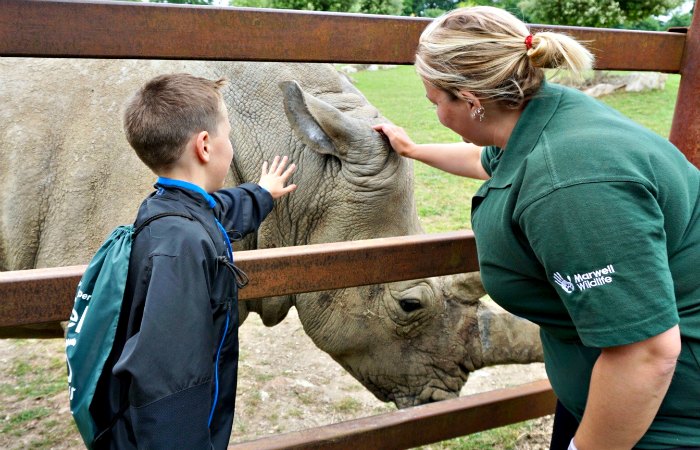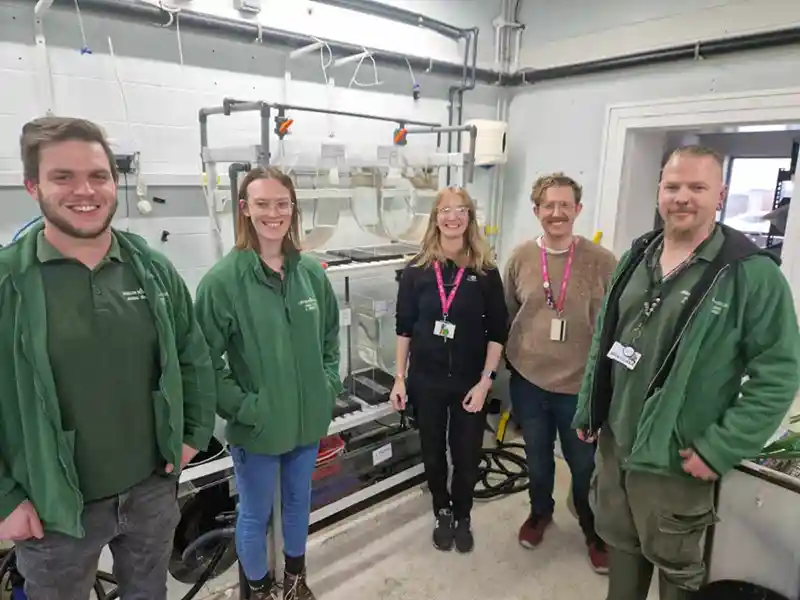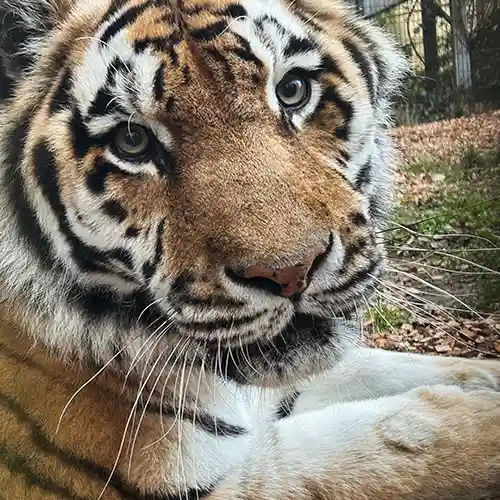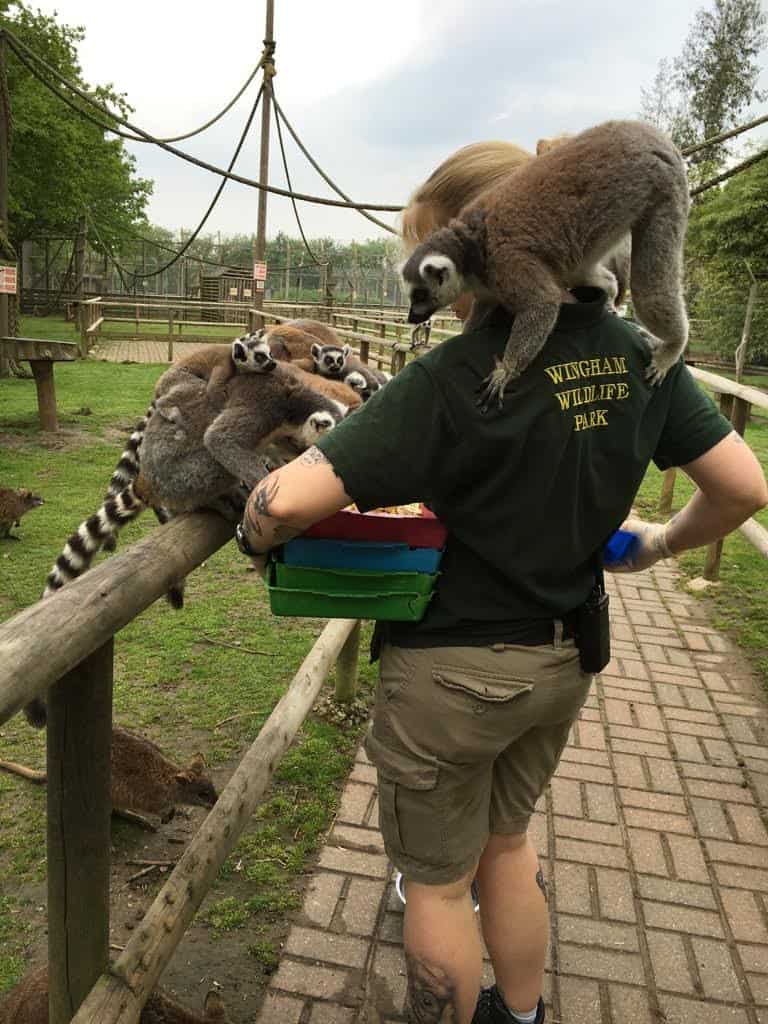How To Become A Zoo Keeper?
페이지 정보

본문
"The success of a country and its ethical progress can be evaluated by the way its animals are dealt with." - Mahatma Gandhi
Do you enjoy animals and dream of working in a zoo? Zoo keepers are type in safeguarding wildlife and caring for animals. At places like the Zoological Society of London (ZSL), over 20,000 animals get the care they require from professionals.
To become a zoo keeper, you need hard work, education, and a love for animals. This job is amazing, letting you deal with lots of species and assist with important conservation work. If you're into wildlife or animal welfare, zookeeping might be ideal for zookeeper you.
Starting your zoo keeper profession indicates learning what's required. This guide will cover education, experience, and more. It's all you need to know to start a satisfying zookeeping profession.
Comprehending the Role of a Zookeeper
Exploring what a zookeeper does reveals a role loaded with obstacles and rewards. They concentrate on animal welfare and preservation. Zookeepers strive to keep animals healthy and pleased in their care.
Daily Responsibilities and Tasks
A zookeeper's day is filled with crucial jobs:
- Preparing meals that meet each animal's nutritional needs
- Cleaning up enclosures to keep them tidy and safe
- Supervising animal health and behaviour
- Giving medicines and treatments as required
- Producing activities to keep animals mentally sharp
Working Environment and Conditions
Zookeepers work outside in all sort of weather condition. They manage both indoor and outdoor areas. The task needs being physically fit and able to deal with the needs of caring for animals.

"Being a zookeeper is more than a task - it's an enthusiastic dedication to animal care and conservation."
Kinds of Animals and Specialisations
Zookeepers can specialise in lots of animal groups:
- Primates
- Big cats
- Marine mammals
- Reptiles
- Birds
Your role may involve dealing with 2-5 different animal species. This needs a great deal of understanding and the capability to adapt.
Essential Skills and Personal Qualities for Zoo Keeping
To be a leading zookeeper, you need more than just a love for animals. Your job will be tough and require you to deal with animals and individuals well. You'll likewise require to understand animal behaviour.
What zoos search for in people includes:

- Exceptional patience and emotional strength
- Strong physical conditioning and stamina
- Keen observation skills
- Capability to remain calm under pressure
- High level of compassion towards animals
Getting hands-on experience is key to mastering this function. You'll need to show:
- Advanced understanding of animal care techniques
- Proficiency in animal handling and security protocols
- Effective communication with both animals and human visitors
"A terrific zookeeper links science, compassion, and conservation in every interaction with animals."
You should understand about animal nutrition, behaviour, and standard vet care. Many zookeepers learn through training, volunteering, and continuous knowing.
Zookeeper work is not just a job. It's a huge commitment to teaching about wildlife and helping preservation. Your enthusiasm and effort will make you stick out in this fulfilling profession.
How to Become a Zoo Keeper
Beginning a profession as a zookeeper needs cautious planning and education. You must initially comprehend the educational requirements and training paths. These will turn your love for animals into a job.
Educational Requirements
To be a fantastic zookeeper, you need a strong academic base. A lot of jobs try to find certain credentials:
- At least 5 GCSEs at grade 4 or above, including English, mathematics, and science
- A levels or zookeeper college qualifications
- A college degree in biology or animal science
- Level 3 Diploma in Animal Management
Needed Certifications
Getting unique accreditations can really assist you in your zookeeper profession. Essential ones include:
- Diploma in Management of Zoo and Aquarium Animals (DMZAA)
- Zookeeping Level 3 Diploma (RQF)
- Animal managing certificates
- First aid credentials
Training Programs and Apprenticeships
Getting hands-on experience is key in zookeeper training. Lots of locations use great opportunities:
- Unpaid apprenticeships at wildlife parks
- Internship programmes at well-known zoos
- Practical training at places like Colchester Zoo and Dartmoor Zoo
- Offering to acquire real-world abilities
Pro idea: Create an in-depth portfolio to reveal your animal care abilities. It will help you in job applications.
Building Relevant Experience in Animal Care
Acquiring hands-on experience is crucial for those wishing to be zookeepers. The task is really competitive. So, it's essential to begin constructing a strong base in animal care.
Your journey begins with discovering methods to work directly with animals. This is a tactical action.
"Experience is the best teacher in animal care" - Wildlife Conservation Experts
Here work ways to dealing with animals:
- Volunteer at local animal shelters to establish basic animal dealing with skills
- Look for internships at wildlife rehab centres
- Check out part-time positions at veterinary centers
- Contact your local zoo for possible volunteer opportunities
Volunteering is a fantastic method to find out about animal behaviour and care. Many zoos and animal shelters are looking for individuals who want to learn. These locations use excellent chances to get hands-on experience and show your devotion to animal welfare.
Here are some ideas to make the most of your experience:
- Keep a record of your abilities and interactions
- Connect with experts in animal care
- Ask for references and zookeeper letters of recommendation
- Stay relentless and show your true passion
Keep in mind, useful experience makes you stick out in the zookeeping world. Whenever you deal with animals, you find out more. This increases your possibilities of getting a job in animal care.
Profession Pathways and Professional Development
Beginning a career as a zookeeper is exciting. It provides lots of chances to grow and specialise. Your journey starts with understanding the different courses in this field.
Entry-Level Positions
Entry-level tasks in zookeeping are an excellent start. They give you hands-on experience. Zoos try to find candidates with:
- Level 2 Diploma in Animal Care (minimum certification)
- GCSEs in English and a clinical subject
- Volunteer experience at animal shelters or farms
Career Progression Opportunities
As you gain experience, your profession can grow. You can go up to:
- Junior Keeper
- Senior Keeper
- Group Leader
- Specialist Roles
"Continuous knowing and useful experience are essential to advancing in your zookeeping profession."
Specialised Roles
You can also pick unique areas like:
- Conservation reproducing programs
- Animal training
- Wildlife research
- Educational outreach
About 25% of zookeepers get advanced degrees in zoology or animal conservation. Getting Level 4 qualifications can boost your opportunities for senior functions and research study.

Working Hours and Physical Demands
Becoming a zookeeper implies you'll work more than simply regular hours. You'll deal with difficult physical obstacles and need to be versatile, zookeeper consisting of weekends and holidays. Zoos are open every day, so you'll frequently work when others relax.

"Zoo keeping is not a typical 9-to-5 task-- it's a way of life of dedicated animal care and dedication."
This job is physically demanding. You'll work outside in any weather condition, lifting heavy products over 50 pounds. Your tasks may include:
- Early early morning feeding schedules
- Cleaning up animal enclosures
- Preparing specialised diet plans
- Performing health checks
- Maintaining intricate environments
Shifts can start as early as 5 AM and go late into the night. You'll be on your feet most of the time, moving between animal zones. Weekends and holidays belong to the job, needing lots of endurance and dedication.
Despite the difficulties, this job has terrific rewards. You'll grow strong, both physically and emotionally. You'll also make incredible connections with unbelievable animals.
Health and Safety Considerations
Being a zookeeper comes with its own set of difficulties. It's essential to know how to keep both animals and personnel safe. This suggests following stringent health and wellness rules.

Zookeepers deal with an unique environment where safety is crucial. Studies reveal that health and wellness are now as crucial as the zoo's main work.
Threat Management Strategies
There are numerous methods to handle threats in zoos:
- Daily checks of animal enclosures for zookeeper dangers
- Counting animals at the start and zookeeper end of shifts
- Seeing how visitors act near animals
- Being ready for emergency situations
Animal Handling Safety Protocols
Knowing which animals are most unsafe is crucial. Huge animals like rhinos can be really dangerous. There have actually been cases where zookeepers got seriously harmed.
Security isn't just about using gear - it's about understanding animal behaviour and staying alert.
Personal Protective Equipment
Zookeepers require to wear the ideal equipment, including:
- Special gloves for handling animals
- Strong shoes for grip and safety
- Clothes that protects against bacteria
Getting immunized against illness like liver disease B and rabies is also essential. It assists keep zookeepers healthy in their tough job.
Wage Expectations and Job Market
Thinking about a career in zoo keeping? It's important to know about salaries and the job market. The field is growing, with more opportunities in the UK.

Let's look at what zoo keepers can earn at various phases:
- Entry-level zookeepers begin at about ₤ 14,000 a year
- Qualified ones make in between ₤ 16,000 and ₤ 22,000
- Senior zookeepers can earn approximately ₤ 30,000 or more
The job outlook for zoo keepers is good. The sector is expected to grow by 5% in the UK by 2029. This implies around 3,910 brand-new tasks will be available.
"The Association of Zoos and Aquariums supports professional development for zoo keepers," a report states.
Salaries differ based on a number of things:

- Experience level
- Specialisation
- Where you work
- The zoo's size and type
While the pay might not be high, the happiness of working with animals is priceless. The typical income is around ₤ 17,000. However, overall incomes can be between ₤ 13,000 and ₤ 27,000 a year.
Conclusion
Starting a career in animal care is an amazing journey. It requires commitment, passion, and a love for learning. With over 350 zoos and wildlife places in the UK, there are numerous task chances. You'll get to work with remarkable animals and assist safeguard wildlife.
To be a zoo keeper, you require more than simply love for animals. You must have a good understanding of biology, be able to communicate well, and constantly want to discover more. You'll gain hands-on experience, zookeeper learn more about animal welfare, and develop a deep respect for nature. About 3,000 individuals in the UK have actually found fulfilling careers in this field.
Your success in zoo keeping comes from mixing science with a love for animals. Whether you're interested in mammals, birds, or marine life, this job lets you assist with conservation. Every day will bring brand-new difficulties and finding out opportunities that will improve your skills and knowledge.
If you like animals and wish to help protect wildlife, zoo keeping might be for you. Handle the obstacle, remain curious, and turn your passion for animals into a satisfying profession.
- 이전글How To save lots of Money with Highstakes Download? 25.06.17
- 다음글【찌라시프로그램 텔레 @TTSOFTKR12】 먹튀검증커뮤니티 사설 토토사이트 마케팅퍼널 네이버키워드 구글광고공식대행사 25.06.17
댓글목록
등록된 댓글이 없습니다.
